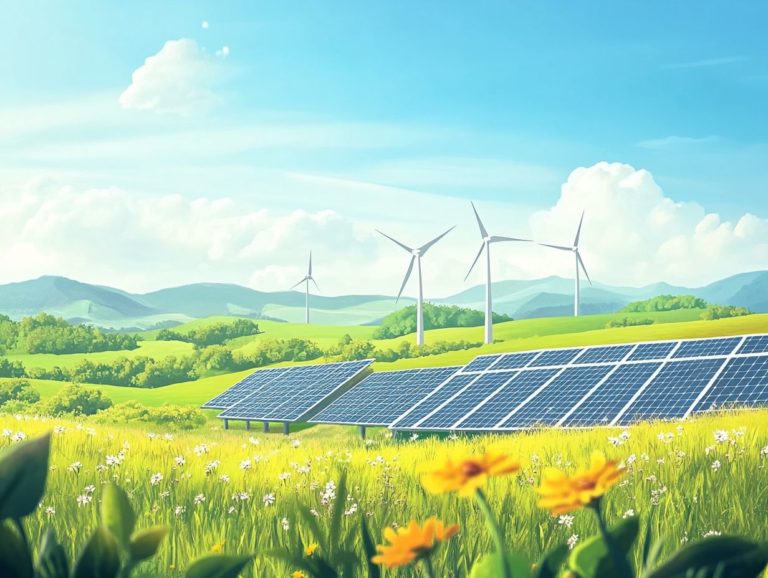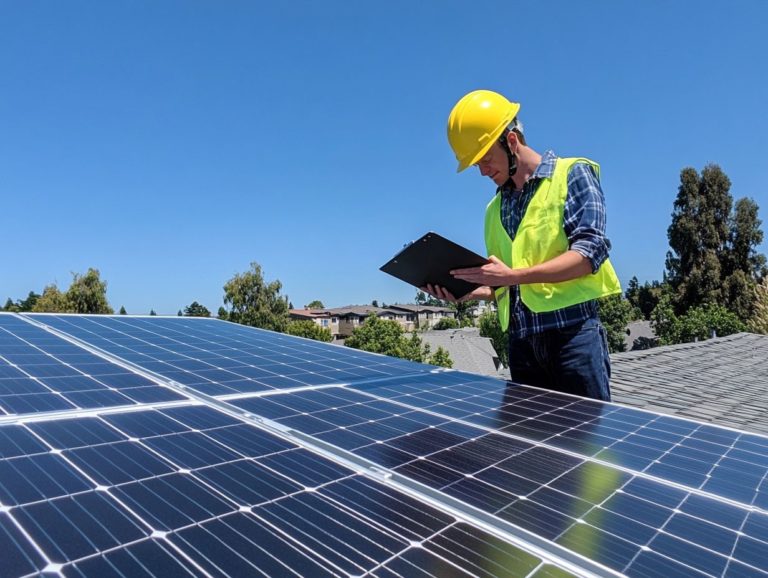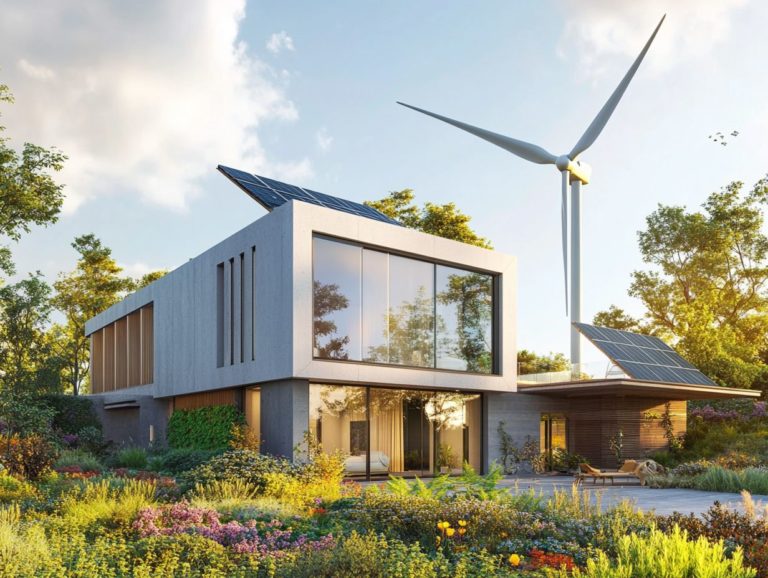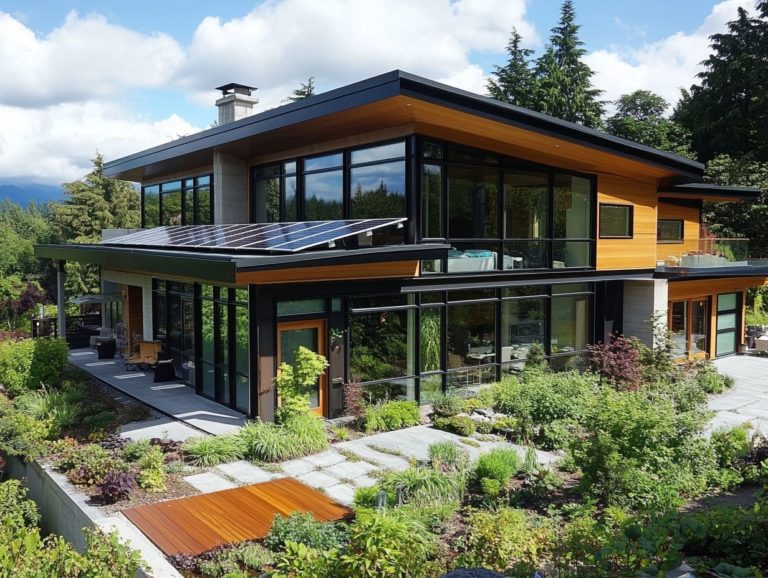How Do Energy Efficient Heating Systems Compare?
In today s world, energy-efficient heating systems are crucial, particularly for heating your home. With rising energy costs and growing environmental concerns, these systems offer practical solutions for your needs.
This article explores the various types of energy-efficient heating systems, highlighting their benefits in terms of cost savings and reduced environmental impact. It also outlines key factors to consider when making your choice, offers tips for installation and maintenance, and clarifies common misconceptions.
Whether you re upgrading an old system or embarking on a new build, understanding your options can lead to a more comfortable and sustainable living environment.
Contents
- Key Takeaways:
- Types of Energy Efficient Heating Systems
- Benefits of Energy Efficient Heating Systems
- Factors to Consider Before Choosing an Energy Efficient Heating System
- Installation and Maintenance of Energy Efficient Heating Systems
- Common Misconceptions about Energy Efficient Heating Systems
- Frequently Asked Questions
- How Do Energy Efficient Heating Systems Compare?
- 1. What is the difference between a traditional heating system and an energy efficient one?
- 2. Do energy efficient heating systems save money in the long run?
- 3. Are there different types of energy efficient heating systems?
- 4. Do I need to replace my entire heating system to make it more energy efficient?
- 5. How do energy efficient heating systems impact the environment?
- 6. Will an energy efficient heating system provide the same warmth as a traditional one?
Key Takeaways:
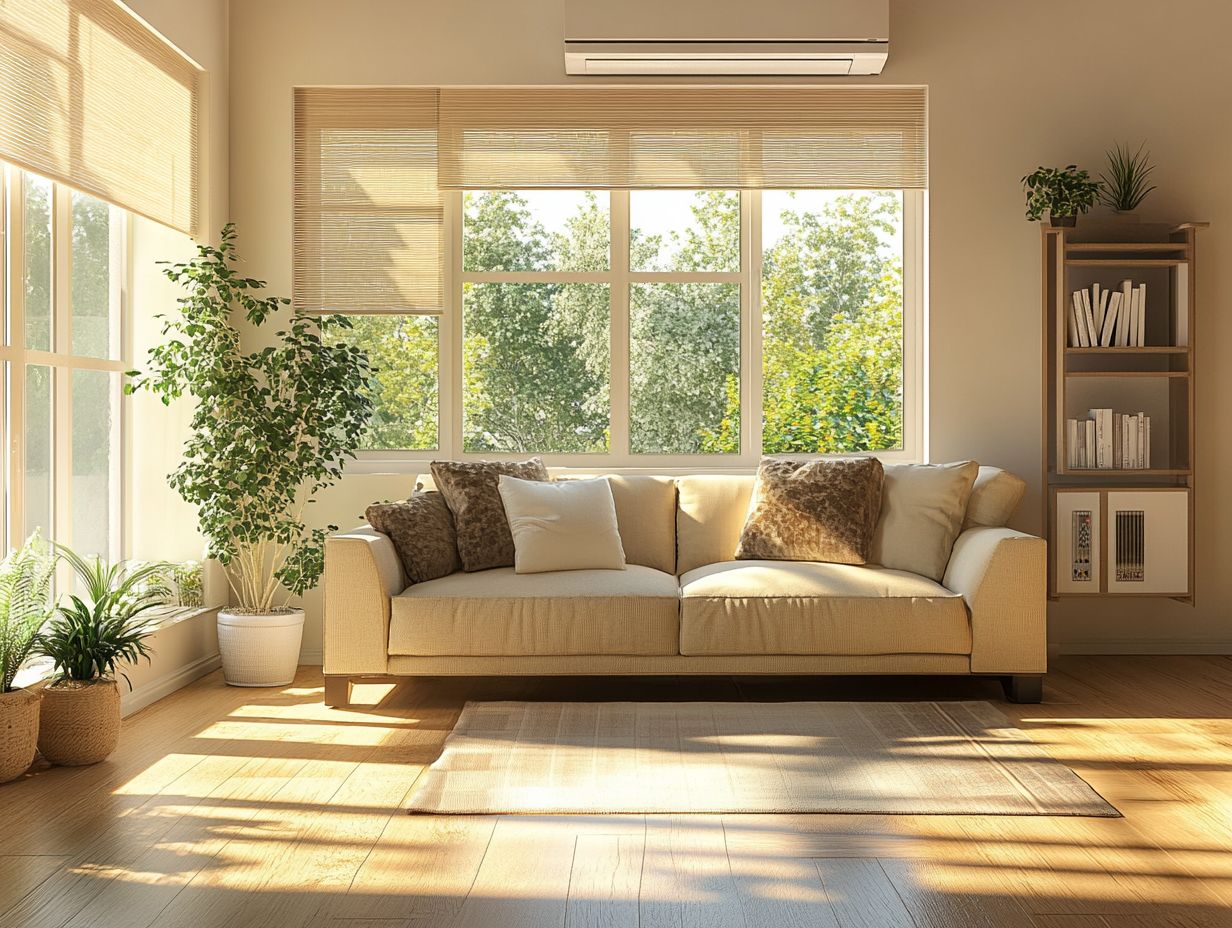
- Energy-efficient heating systems minimize energy use and environmental impact.
- Each type has its pros and cons; choose based on your specific needs.
- Consider factors like home size and climate for optimal choices.
- Proper installation and maintenance are crucial for performance.
What are Energy Efficient Heating Systems?
Energy-efficient heating systems are designed to optimize your residential or commercial heating process, ensuring maximum comfort while keeping energy consumption and costs to a minimum. Thanks to modern technology, you can choose from various options, including AFUE-rated boilers, furnaces, and heat pumps, all tailored to meet your local climate’s diverse needs.
By utilizing natural gas, electricity, or renewable energy sources, these systems play a crucial role in reducing carbon dioxide emissions and fostering sustainable living.
These innovative systems not only help lower your utility bills but also enhance indoor air quality and the overall atmosphere of your space. Take heat pumps, for example; they offer both heating and cooling capabilities, making them an excellent choice for areas with fluctuating temperatures.
Modern furnaces with variable-speed blowers can adjust their output based on your home s specific heating requirements, ensuring optimal efficiency. For anyone aiming to reduce their carbon footprint and operational costs, investing in energy-efficient heating solutions is essential for a sustainable future.
Types of Energy Efficient Heating Systems
You ll find a variety of energy-efficient heating systems available today, each designed to cater to specific heating needs and personal preferences. From classic gas and electric furnaces to cutting-edge heat pumps and geothermal heating solutions, the options are diverse.
By understanding the strengths and weaknesses of each system, you can make well-informed choices about the best heating solutions tailored to your unique circumstances.
Comparing Different Types
When comparing different types of energy-efficient heating systems, it s crucial to consider performance metrics like AFUE (Annual Fuel Utilization Efficiency) and SEER (Seasonal Energy Efficiency Ratio). These ratings provide insights into each system s efficiency and environmental impact, enabling you to evaluate potential emissions and energy consumption based on your specific heating load and operational requirements.
Understanding these efficiency ratings is essential, as they serve as benchmarks for assessing how effectively a heating system converts fuel into usable heat across varying seasonal conditions. For instance, a higher AFUE indicates less fuel waste, resulting in lower utility bills and reduced greenhouse gas emissions.
Conversely, SEER measures cooling efficiency during warmer months, a critical factor in evaluating overall energy performance.
By carefully weighing these factors, you can make informed decisions that enhance your comfort while aligning with your sustainability goals.
Benefits of Energy Efficient Heating Systems
Energy-efficient heating systems offer many advantages for homeowners and businesses. They provide significant savings on energy bills.
They also help reduce your environmental footprint by lowering carbon dioxide emissions. New technologies enhance your comfort by maintaining consistent indoor temperatures while minimizing the need for ongoing maintenance.
Cost Savings and Environmental Impact
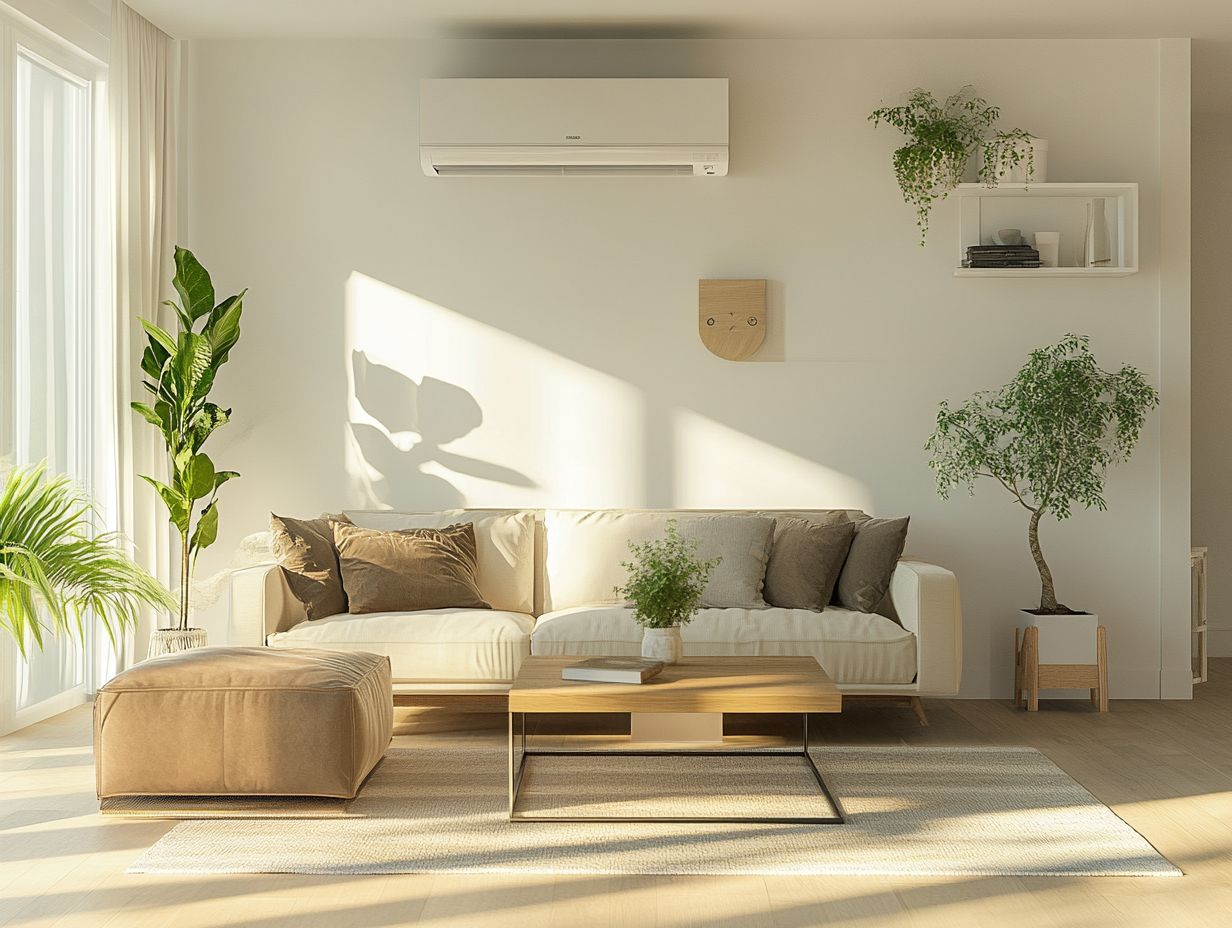
One of the most compelling reasons to invest in energy-efficient heating systems is the substantial cost savings they offer over time. By reducing overall energy consumption, these systems lower your monthly energy bills and minimize harmful emissions, including carbon dioxide. This leads to a healthier environment and a more sustainable lifestyle.
As a homeowner, you could see an average reduction of 20-30% in heating costs, depending on the efficiency rating of your chosen system. For example, modern heat pumps tap into renewable heat sources, significantly cutting down on energy use while providing effective warmth. To learn more about selecting the best option, consider choosing the right energy-efficient heating system.
This synergy not only relieves your wallet; it plays a crucial role in combating climate change. With lower emissions from energy-efficient heating, you contribute to cleaner air and a reduced environmental footprint, positively impacting public health. This is why adopting such systems benefits not just you, but the planet as a whole.
Factors to Consider Before Choosing an Energy Efficient Heating System
Don t overlook these vital factors before choosing an energy-efficient heating system. Consider the size of your home, local climate conditions, heating load requirements, and the existing insulation.
Understanding these factors impacts how well your heating system works.
Home Size and Climate
Home size and local climate play pivotal roles in determining how effectively energy-efficient heating systems perform. If you live in a larger home, you may need a more powerful system to maintain cozy temperatures.
Your regional climate will influence the types of heating solutions that keep you comfortable throughout the year. For example, if you’re in an area with long, harsh winters, you might lean toward high-capacity options like furnaces or heat pumps to fend off the cold.
Conversely, if your residence is smaller and in a milder climate, compact solutions such as electric heaters or radiant floor systems could provide just the right amount of warmth without draining your energy resources.
This customized approach optimizes your energy savings and elevates your comfort, allowing you to select systems that suit your living space and local weather patterns.
Installation and Maintenance of Energy Efficient Heating Systems
The successful installation and maintenance of energy-efficient heating systems are vital for maximizing their performance and ensuring long-term comfort.
When you invest in proper installation, you optimize the system’s efficiency and extend its lifespan. Additionally, committing to regular maintenance is essential for preventing issues that could undermine its effectiveness and energy savings.
Tips for Proper Installation and Maintenance
To ensure optimal performance and longevity of your energy-efficient heating systems, it’s essential to implement proper installation and maintenance practices.
Key considerations include hiring qualified professionals and conducting regular inspections. Utilizing the latest technology to monitor system performance contributes to your comfort and efficiency.
Scheduling annual maintenance checks allows you to catch potential issues early. This enables timely repairs, saving you from costly replacements later on.
Familiarizing yourself with advanced thermostats, which are devices that allow easy control of your heating, can help optimize heating cycles based on real-time data.
Investing in programmable systems can significantly enhance your energy savings while elevating your comfort. By prioritizing expert installation services, your heating system will operate at peak efficiency, leading to reduced energy bills and extending the lifespan of the unit.
Common Misconceptions about Energy Efficient Heating Systems
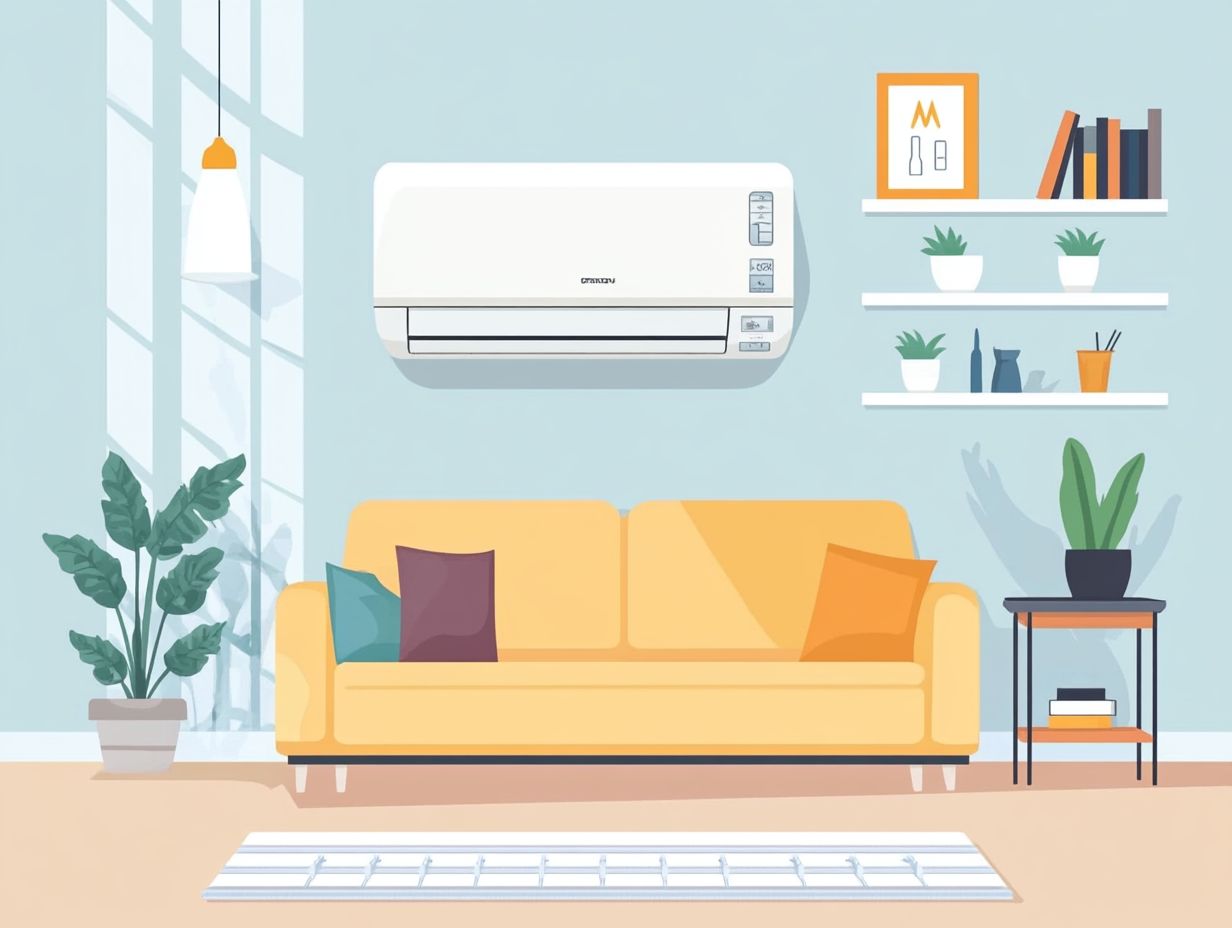
You might find yourself grappling with various misconceptions about energy-efficient heating systems. These can lead to confusion and misinformed choices.
Many people believe these systems are too expensive or struggle to perform in extreme climates.
It’s important to address these myths. This will help you understand the real benefits of energy-efficient systems.
Understanding the facts empowers you to make informed decisions. You can truly appreciate the value of these systems in enhancing comfort and efficiency.
Debunking Myths and Misunderstandings
Debunking the myths surrounding energy-efficient heating systems is essential for making informed choices. For instance, you might think these systems come with a hefty upfront cost.
However, they often lead to substantial long-term savings through lower energy bills and enhanced performance.
You may also believe that energy-efficient options are only effective in specific climates. Yet advancements in technology have made them practical and beneficial across a wide range of environments.
There s a common misconception about maintenance costs. Many assume that energy-efficient systems demand more upkeep.
In reality, these systems typically experience fewer breakdowns, translating to lower repair expenses.
Understanding these facts can help you realize that the initial investment is justifiable. It can be quickly recouped through savings and reliability over time.
Don t let misconceptions hold you back! This shift in perspective encourages you to make more sustainable choices for your heating needs.
Frequently Asked Questions
How Do Energy Efficient Heating Systems Compare?
Energy efficient heating systems are designed to use less energy while still providing adequate warmth for your home. Here are some common questions and answers about how these systems compare:
1. What is the difference between a traditional heating system and an energy efficient one?
A traditional heating system uses more energy to produce the same amount of heat as an energy efficient one. This is because energy efficient systems are designed with advanced technology to reduce wasted energy.
2. Do energy efficient heating systems save money in the long run?
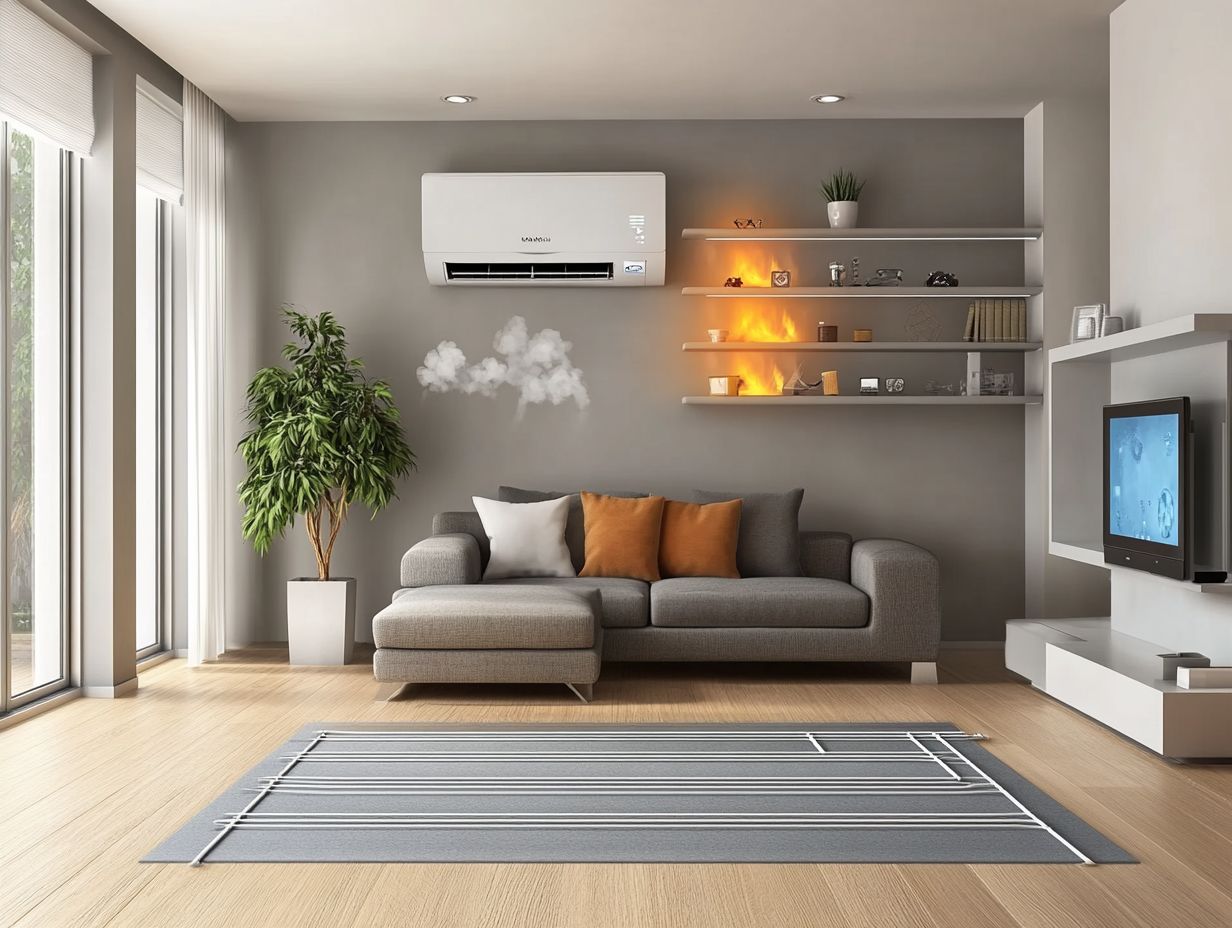
Yes, energy efficient systems can save you money in the long run. While they may cost more upfront, the energy savings over time can make up for the initial investment.
3. Are there different types of energy efficient heating systems?
Yes, there are different types of energy efficient heating systems, including heat pumps, solar heating, and geothermal systems. Each type has unique benefits and may be more suitable for certain climates or homes.
Check your heating system for efficiency or contact a professional today!
4. Do I need to replace my entire heating system to make it more energy efficient?
No, you don t need to replace your whole heating system. You can boost its efficiency by adding insulation, upgrading to a smart thermostat, or sealing air leaks.
5. How do energy efficient heating systems impact the environment?
Energy efficient heating systems use less power. This means fewer greenhouse gases and pollutants enter our air, helping to protect our planet.
6. Will an energy efficient heating system provide the same warmth as a traditional one?
Yes, energy efficient systems offer the same warmth as traditional ones. In many cases, they provide even heat distribution, improving your comfort at home.

